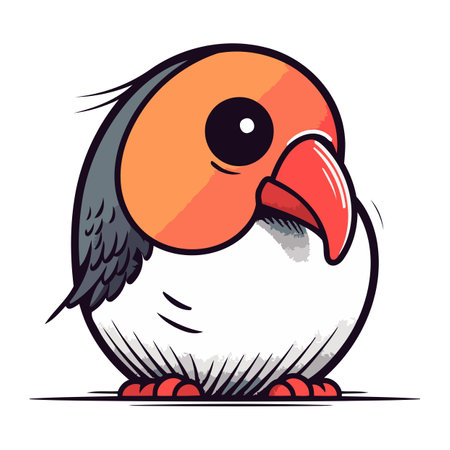1. Choosing the Right Conure
Conures are vibrant, intelligent, and affectionate parrots that make wonderful pets. However, not all conures are the same—each species has its own personality, size, and care requirements. Choosing the right conure for your lifestyle is crucial to ensuring a happy and healthy relationship with your new feathered friend.
Understanding Different Types of Conures
Conures come in various sizes and temperaments. Some are more social and energetic, while others tend to be quieter and more independent. Here’s a quick comparison of some popular conure species:
| Conure Species | Size | Personality Traits | Noise Level |
|---|---|---|---|
| Green-Cheeked Conure | Small (10-11 inches) | Playful, affectionate, quieter than most conures | Low to moderate |
| Sun Conure | Medium (12 inches) | Sociable, energetic, very vocal | High |
| Nanday Conure | Medium (11-12 inches) | Clever, mischievous, loves attention | High |
| Pineapple Conure (Mutation of Green-Cheeked) | Small (10-11 inches) | Sociable, cuddly, playful | Low to moderate |
| Blue-Crowned Conure | Larger medium (14 inches) | Sensitive, intelligent, good talker | Moderate to high |
Selecting the Best Conure for Your Lifestyle
The best conure for you depends on several factors such as your living space, noise tolerance, and time availability.
Your Living Situation
- If you live in an apartment or have noise-sensitive neighbors, a Green-Cheeked or Pineapple Conure might be a better choice since they tend to be quieter.
- If noise isn’t an issue and you enjoy a chatty bird, a Sun or Nanday Conure could be a great fit.
Your Time Commitment
- If you have plenty of time to interact with your bird daily, a Sun or Nanday Conure will thrive with attention.
- If you have a busier schedule but can still provide enrichment activities, a Green-Cheeked or Blue-Crowned Conure may be more suitable.
Your Experience Level
- If youre a first-time bird owner, Green-Cheeked and Pineapple Conures are often recommended due to their manageable personalities and lower noise levels.
- If you have experience with birds and want a more interactive companion, Blue-Crowned or Nanday Conures may offer more engagement.
The Importance of Meeting Their Needs
No matter which conure you choose, all require love, mental stimulation, and proper care. Selecting the right conure that fits your lifestyle ensures both you and your pet will have a fulfilling companionship.
2. Creating a Safe and Comfortable Environment
Providing your conure with a safe, comfortable, and stimulating environment is essential for their well-being. From choosing the right cage to selecting perches and toys, every detail matters. Let’s go over the key aspects of setting up the perfect home for your feathered friend.
Setting Up a Spacious Cage
Your conures cage is their home, so it should be spacious enough for them to move around freely. A cage that is too small can lead to stress and health problems. Here are some important factors to consider when choosing a cage:
| Feature | Recommendation |
|---|---|
| Minimum Cage Size | At least 24” x 24” x 24” (larger is always better) |
| Bar Spacing | Between 1/2″ to 5/8″ to prevent escape or injury |
| Cage Material | Stainless steel or powder-coated metal for safety and durability |
| Number of Doors | Multiple doors for easy access and cleaning |
Selecting the Right Perches and Toys
Perches
Perches are crucial for keeping your conures feet healthy. Using different types of perches helps prevent foot problems and encourages natural movement.
- Natural Wood Perches: Mimic tree branches and provide a comfortable grip.
- Rope Perches: Soft on the feet and great for climbing.
- Concrete or Sand Perches: Help keep nails trimmed but should not be the only type of perch available.
Toys
Toys help keep your conure entertained and mentally stimulated. Rotate toys regularly to prevent boredom. Consider these types:
- Chew Toys: Wooden or shreddable toys satisfy their natural need to chew.
- Puzzle Toys: Encourage problem-solving and mental stimulation.
- Bells and Mirrors: Some birds enjoy interactive toys that make sounds or reflect images.
Ensuring a Stimulating and Secure Living Space
Your conures cage should be placed in a safe, engaging area of your home. Follow these guidelines to create an ideal environment:
- Avoid Direct Sunlight and Drafts: Keep the cage away from windows, air vents, or direct heat sources.
- Noisy vs. Quiet Areas: Conures love interaction, so place the cage where they can see family activity but still have quiet time when needed.
- Cage Cover at Night: Covering the cage at bedtime helps establish a consistent sleep routine.
A well-designed living space ensures your conure stays happy, healthy, and engaged in their environment. By providing proper perches, toys, and a secure setup, you’re creating the best possible home for your beloved pet.

3. Proper Nutrition for a Healthy Conure
Providing your conure with a well-balanced diet is essential for their health and longevity. A proper diet should include high-quality pellets, fresh fruits, vegetables, and occasional treats while avoiding harmful foods that can be toxic to birds.
Balanced Diet Components
A balanced diet ensures your conure gets all the necessary nutrients to stay active and healthy. Below is an overview of essential food groups:
| Food Type | Description | Examples |
|---|---|---|
| Pellets | Formulated to provide essential vitamins and minerals. | Zupreem, Harrisons, Roudybush |
| Fresh Fruits | A great source of natural sugars, fiber, and vitamins. | Apples (seedless), bananas, berries, mangoes |
| Vegetables | Packed with nutrients and antioxidants. | Kale, carrots, bell peppers, broccoli |
| Treats (Occasionally) | A fun way to bond with your bird but should be given in moderation. | Nuts (unsalted), millet spray, cooked eggs |
Foods to Avoid
Certain foods are toxic or unhealthy for conures and should never be included in their diet. Here are some common foods to avoid:
- Avocado: Contains persin, which is toxic to birds.
- Caffeine: Found in coffee, tea, and chocolate; it can be fatal.
- Dairy Products: Birds cannot digest lactose properly.
- Sugary or Salty Foods: Can lead to obesity and other health issues.
Tips for Feeding Your Conure
- Diversify Their Diet: Offer a variety of safe foods to keep mealtime interesting.
- Avoid Seed-Only Diets: Seeds lack essential nutrients and can lead to malnutrition.
- Provide Fresh Water Daily: Ensure they always have clean drinking water available.
- No Spoiled Food: Remove uneaten fresh food after a few hours to prevent bacterial growth.
- (Monitor Their Weight & Appetite:
A proper diet plays a crucial role in keeping your conure happy and healthy. By offering a variety of nutritious foods while avoiding harmful ones, you ensure your feathered friend thrives for years to come!
4. Socialization and Mental Stimulation
Conures are highly social and intelligent birds that thrive on daily interaction and mental stimulation. Without proper engagement, they can become bored, lonely, and even develop behavioral issues such as feather plucking or excessive screaming. Ensuring your conure receives enough socialization and mental enrichment is essential for their overall well-being.
Interacting with Your Conure
Building a strong bond with your conure requires consistent, positive interactions. Spend time talking to them, offering treats, and engaging in playtime. Here are some fun ways to interact with your bird:
- Talking and Singing: Conures enjoy listening to human voices. Regularly talk or sing to your bird to strengthen your connection.
- Cuddling and Head Scratches: Many conures love being petted, especially around the head and neck. Always respect their boundaries and only pet them when they show interest.
- Shoulder Time: Allowing your conure to perch on your shoulder while you go about your day can make them feel included and secure.
- Interactive Play: Use toys, mirrors, and games like peek-a-boo to keep your conure engaged.
Preventing Boredom
Boredom can lead to destructive behaviors in conures. Providing a stimulating environment is key to keeping them happy and entertained.
| Activity | Description |
|---|---|
| Toy Rotation | Switch out toys weekly to keep things fresh and exciting. |
| Puzzle Toys | Toys that dispense treats encourage problem-solving skills. |
| Naturally Foraging Food | Hide food in paper rolls or puzzle feeders to mimic wild foraging behavior. |
| Safe Household Exploration | Create a bird-safe play area where they can explore outside of their cage. |
| Mimicking Sounds | Your conure may enjoy learning new sounds or words from you. |
Training Tips
Training your conure not only strengthens your bond but also helps prevent unwanted behaviors. Use positive reinforcement techniques such as praise, treats, or favorite toys to encourage good behavior.
Basic Training Commands
- “Step Up”: Teach your bird to step onto your finger or hand by using treats as encouragement.
- “Step Down”: Help them learn how to safely return to a perch or cage when needed.
- “Recall Training”: Train your conure to fly back to you on command if they are flighted.
- “Target Training”: Use a small stick or object for them to follow, which can help guide their movements during training sessions.
Promoting a Strong Bond Through Daily Interaction
The more time you spend with your conure, the stronger your relationship will become. Set aside dedicated bonding time each day to reinforce trust and companionship. Simple activities like watching TV together, sharing safe fruits as snacks, or just sitting quietly while they preen can create a deep connection between you and your bird.
5. Health and Wellness Care
Keeping your conure healthy is one of the most important aspects of responsible pet ownership. A well-cared-for conure can live a long, happy life, but its essential to recognize signs of illness, schedule regular vet visits, maintain proper hygiene, and ensure overall well-being.
Recognizing Signs of Illness
Conures are good at hiding signs of illness, so its important to monitor their behavior and physical condition closely. Here are some common signs that may indicate your bird is not feeling well:
| Signs of Illness | Possible Causes |
|---|---|
| Lethargy or unusual tiredness | Infections, nutritional deficiencies, or underlying health issues |
| Puffed-up feathers for extended periods | A sign of discomfort or sickness |
| Loss of appetite | Disease, stress, or dietary issues |
| Nasal discharge or watery eyes | Respiratory infections or allergies |
| Labored breathing or tail bobbing while breathing | Pneumonia or respiratory infections |
| Sitting at the bottom of the cage | Poor health or extreme weakness |
| Changes in droppings (color, consistency, or frequency) | Disease, infection, or digestive problems |
| Bald patches or excessive feather plucking | Mites, stress, boredom, or skin infections |
| Sneezing frequently with discharge | Bacterial or fungal infection in the respiratory tract |
The Importance of Routine Vet Visits
Your conure should see an avian veterinarian at least once a year for a check-up. Regular vet visits help detect potential health issues early and ensure your bird is receiving proper nutrition and care. If you notice any signs of illness mentioned above, schedule a vet appointment immediately.
Selecting an Avian Veterinarian
A regular veterinarian may not have the expertise needed to treat birds. Look for a certified avian vet who specializes in treating parrots and small birds. You can find one through recommendations from other bird owners or by searching through associations like the Association of Avian Veterinarians (AAV).
Maintaining Proper Hygiene
A clean environment plays a crucial role in your conure’s health. Poor hygiene can lead to infections and respiratory problems. Follow these hygiene practices to keep your birds space clean:
- Cage Cleaning: Clean food and water dishes daily and wipe down perches and toys weekly. Deep clean the cage once a month with bird-safe disinfectant.
- Bathing: Offer your conure regular baths using a shallow dish of lukewarm water or gently mist them with a spray bottle.
- Nail and Beak Maintenance: Provide natural wood perches to help keep nails trimmed. If necessary, have your vet trim overgrown nails and beaks.
- Avoid Airborne Toxins: Keep your home free from smoke, aerosol sprays, scented candles, and non-stick cookware fumes, as these can be harmful to birds.
Nutritional Well-being for Overall Health
A balanced diet is key to maintaining your conures overall health. A proper diet includes:
- A high-quality pellet base: Provides essential nutrients.
- A variety of fresh fruits and vegetables: Apples (without seeds), carrots, spinach, bell peppers, etc.
- Nuts and seeds in moderation: Used as occasional treats.
- Avoid unhealthy foods: No chocolate, avocado, caffeine, salty snacks, or processed foods.
- Clean drinking water: Change it daily to prevent bacterial growth.
Mental Health and Emotional Well-being
Your conures mental health is just as important as their physical health. Conures are social birds that need interaction and stimulation to stay happy. Make sure to:
- Spend quality time daily: Talk to them, let them out for supervised playtime, and offer affection.
- Toys and Enrichment: Provide chewable toys, foraging toys, ladders, swings, and mirrors.
- A consistent routine: Birds thrive on routine; try to feed them and interact with them at the same times each day.
- Adequate sleep: Cover their cage at night to ensure they get 10-12 hours of uninterrupted sleep.
- Avoid stressors: Keep loud noises minimal and introduce new environments gradually.
A healthy conure is a happy conure! By staying attentive to their health needs, scheduling regular vet visits, maintaining cleanliness, providing a nutritious diet, and ensuring mental stimulation, you will give your feathered friend the best possible life.

